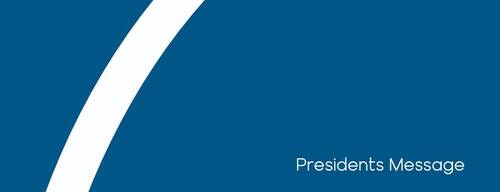Presidents Message: Horsemanship
20. Dec 2022 / Category: News
It is the time of the year that we look back and consider the occasions that have had a big impact on us and our sport. When looking across our community the term “Social Licence” can be seen as one of these big impact moments, and undoubtedly our “term of the year”.
It is a term, that the Equestrian community is relating to the legitimacy and acceptance of humans sporting with horses and the practices applied. It considers what the general public actually see’s when they watch our sport, and how powerful these public opinions are. After the Olympic Games in Tokyo, and due to some of the images that circulated from the event, the FEI was of the opinion that there is also a need for the equestrian sport to have a Social License in the future. This opinion was also based on the fact that the equestrian sport is fast changing into a billion-euro economy. In Europe, the annual economic value of the equine sport is worth ca. 50 billion per year. With this huge value comes greater attention and greater scrutiny.
The FEI appointed an independent commission with the assignment to analyse the different aspects of a Social License in relation to horse welfare. The commission has been tasked to construct a practical course of action by making independent recommendations to the FEI, with the purpose to create a Social License framework so that equestrian activities are endorsed and accepted by society. The name of the commission EEWC ( Equestrian Ethics and Wellbeing Commission ), says it all. The Commission is concentrating on the well-being of the horse when partnering with humans and the activities within that cooperation.
One of the first actions the commission undertook was a survey of the public, with and without experience with horses. The survey collated opinions from almost 28,000 equestrian stakeholders, and 14,000 members of the general public across 14 nations. The results found that the majority of the public is still positive about sporting with horses but there is clear concern about the welfare of the horses (e.g. their well-being and how they are treated) and overall horse safety (e.g. risk of injury in training and competition). These concerns are not only held by those outside of the sport, as 78% of the equestrian stakeholders surveyed feel that the welfare standard needs improving. The main concerns of those equestrian stakeholders were the tack and equipment and the training and riding practices. The term welfare is however still a broad one and needs a more concise understanding to create positive actions. Full results of this survey are available to view online.
Reading a report of the KNMvD (Koninklijke Nederlandse Maatschappij voor Dierengeneeskunde) welfare was described as follows:
An individual is in a state of well-being when he is able to actively adapt to his life circumstances and thus reach a state that he experiences as positive.
Applying this to equestrian sport means that the way the sport is practiced should guarantee horse well-being both physically and mentally.
To achieve this requires the application of true horsemanship. True horsemanship is the way to train and compete with a horse in a way that provides an optimally positive experience for the horse. Horsemanship means that we can train and compete with horses without the use of substances, or techniques that cause mental stress and physical pain and damage to the horse, and accounts for their rest and rehabilitation.
Evolutions in technology and the use of social media have created different standards of what horsemanship entails. Science is also playing a role in creating new methods to understand if a horse is experiencing a state of positive well-being. These evolutions mean our ways of working with horses may need updating. The choices in types of tack and equipment used, and the ways we feed, train and travel can all be reviewed with this new lens. This may change how horsemanship is understood, compared to years gone by, but it does not change the importance of applying the principle.
As one year closes and another begins, perhaps our word of 2023 will become “horsemanship”. With this thought, I wish all of you a fine Christmas period and a Happy New Year with Horsemanship.
Theo Ploegmakers
EEF President.



